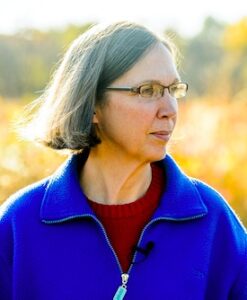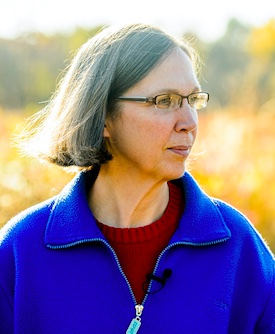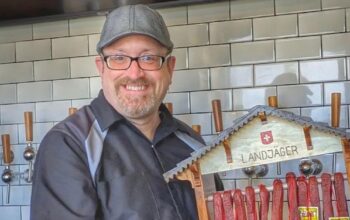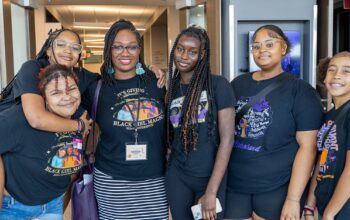Managing, monitoring and connecting community members to over 1,200 acres of woodlands, savannas, prairies and wetlands could seem unimaginable for some. For Karen Oberhauser, director of the University of Wisconsin–Madison Arboretum, upholding the area’s three pillars — conserving and restoring arboretum land, advancing research and fostering the land ethic — is an everyday reality.
Oberhauser, a Wisconsin native who earned a master’s degree in natural science education from UW–Madison, commenced her tenure as the Arboretum’s eighth director on Oct. 1, 2017. With nearly 40 years of expertise in studying monarch butterflies under her belt, Oberhauser also serves as a faculty member in the university’s Department of Entomology.
What do you think is the biggest challenge our community faces?
There are three. For our community, the biggest one is probably climate change. That’s going to impact so many aspects of our lives — from the trees that can survive in our yards to the amount of stormwater problems that we have, to the pleasantness of our natural surroundings.
We continue to face challenges from habitat loss, and you can see that happening as you drive out of Madison and see development creeping further and further. The actual footprint of the city is getting bigger. The removal of the habitat that was in those places, whether it was prairie or agricultural fields, is a challenge. As we have fewer and fewer open spaces, we’re going to suffer more of the impact from environmental challenges.
The final one I think is important for Madison is what we’re going to do about stormwater. That’s closely tied to climate change. As storms become more intense and more frequent, we don’t have the physical infrastructure to deal with that. As the land is becoming more developed, we’re going to have more problems with handling stormwater. In 2018, we had a rain event of 10 inches on the west side of Madison in a 24-hour period, and that completely overwhelmed the infrastructure. There was major flooding in people’s homes, and it washed out roads, bridges and railroad tracks. The odds of that happening again become greater under climate change.
What do you wish people in our community understood better?
It’s important for all of us to do what we can individually and collectively. I think that a lot of people see environmental problems as things that are kind of separate from them, that they might suffer the consequences, but they don’t have the power to effect change. People could really focus on living all parts of their lives in ways that can make a difference, not only in our own individual actions, but in what we say to other people, the example we set and what we teach our kids, neighbors and family. I think that people feel like they don't have power to effect change, and I think that might be one of the hardest things for us as a society to overcome.
What is one change you would make if you could that would make life better for people in our community?
This sounds like a little thing, but I think a big change that would make things better in so many ways—it would help pollinators, stormwater problems—would be to get rid of lawns. If we didn’t have so many lawns, monocultures of non-native grass, if people would put in native plants, we would have more resources for pollinators. The ground would be better at soaking up water that falls onto it. If we do need to have lawns, they should be managed in a way that isn’t so harmful to the environment. Letting a few other species move into the lawns, like clover and other flowering plants, could still provide food for pollinators and would do a little bit better at soaking up groundwater. The best would be changing lawns into native plant gardens, and the second would be to stop using chemical inputs to allow a little bit more biodiversity in the lawns. Then we don’t add all those toxins into the environment.
What in our community gives you hope?
I think living in Madison gives me hope because of the concern that so many people have for the environment. It gives me hope when I see so many people at the Arboretum on a nice day, like today. There were already so many cars in the parking lot when I got to work and so many people out on the trails. The fact that so many people care about the environment, care about each other, care about themselves enough to get out into the natural world and soak up all the goodness that it can bring to us, that gives me hope.






